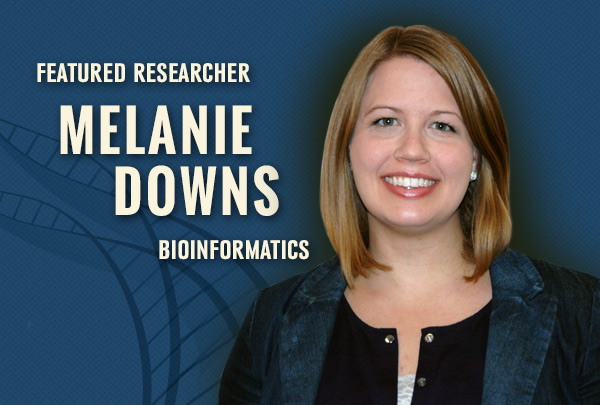
Dr. Downs is an Assistant Professor of Food Science and Technology. As a featured researcher in Bioinformatics, she defines Big Data as not only large volumes of data but the analysis of more layers of different types of data. Much of her work involves making connections between different data outputs to gain a bigger picture of how complex systems are working and potentially predict outcomes of these systems.
My research primarily focuses on proteomics, and in particular food allergen proteomics. As experimental methods and instrumentation have advanced very rapidly over the past decade, proteomics has undergone a dramatic shift in the use of data. Previously, individual or simplified mixtures of proteins would each be isolated, identified, and quantified in separate mass spectrometry runs. Now, thousands of proteins can be identified in a single run. Processing and analyzing the data that is generated by modern mass spectrometers has necessitated the development of more advanced Big Data tools and methods.
Big Data plays a number of roles in proteomics research. The processing of tandem mass spectrometry (LC-MS/MS) data is quite a computational undertaking in itself, with tens of thousands of mass spectra that have to be processed and searched against sequence databases to deliver peptide and protein identifications. Since we are often interested in more than just identifications, a substantial amount of effort also goes into quantifying proteins and analyzing how changes in protein abundances are related and how they impact the functionality of a system.
Big Data has been tremendously important for the field of proteomics and protein mass spectrometry. In many ways, the types of high-throughput LC-MS/MS experiments that we can do today would not be possible without the computational tools that have been developed to process and analyze the data.
As mass spectrometry instrumentation continues to get faster and to incorporate orthogonal separations and measurements, Big Data will continue to be important in processing and analyzing the results of these experiments. Big Data strategies will also be critical for the integration of proteomic and metaproteomic data with genomic, metagenomic, and metabolomic data to understand complex systems and solve biological problems.
Melanie Downs holds a B.S., M.S., and Ph.D. in Food Science Technology from the University of Nebraska-Lincoln. She teaches Food Proteins in addition to Food Allergen Management through the Food Allergy Research & Resource Program. http://foodsci.unl.edu/mdowns